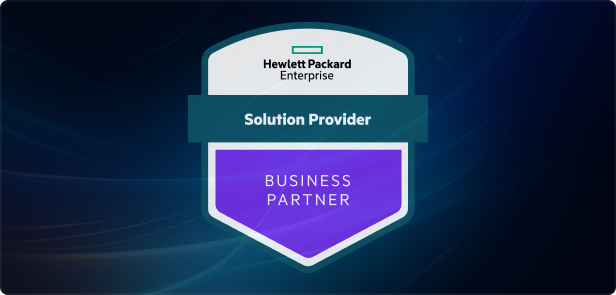DEDICATED SERVER RENTAL
Rent dedicated servers or buy and colocate in our certified data centers across Europe! Our experts will help you to set them up and migrate your existing system and data.

Maintain full control
Get full control with root administrative access. Install any programs or services you need and get control over users and access

Network & hardware guarantee
Your dedicated server comes with a standard 99.95% network uptime guarantee and 100% hardware warranty

Low latency network
Dedicated servers at multiple data center locations are connected with 10 Gbit/s premium Cisco network across Europe
Choose budget or enterprise-class dedicated servers with your desired components. DEAC reliable data centers ensure the appropriate environment for high performance and high security level 24/7 with possible extra security features according to your business needs.
Secure data center infrastructure
with top-notch hardware
- Our long-term technology partners, Dell and HP, help us provide world-class business solutions to meet your IT needs.
- Expertise, competency and dedication to exceptional customer service.
- Power up your IT infrastructure by renting dedicated servers!


Choose dedicated server to ensure your business process continuity! If your business has IT resources and software with high power requirements, customized dedicated server is what you need. Dedicated server hosting is an ideal solution for high traffic portals, e-commerce, as well as for corporate e-mail systems or data backup.
Dedicated server for your business. Configure now!
Included in price
 1Gbit/s unlimited bandwidth
1Gbit/s unlimited bandwidth Free IP address
Free IP address Unmetered 1 Gbit port
Unmetered 1 Gbit port Customer support 24/7
Customer support 24/7 100% genuine components
100% genuine components
Server and network administration and monitoring
Use server administration and monitoring to increase IT responsiveness, to get detailed statistics and an up-to-date IT system that ensures continuity of your business processes. DEAC guarantees that you will have required support at any time!

Latest generation dedicated servers
DEAC is a strategic partner of DELL, HP and other manufacturers. We ensure the latest server technologies to provide high performance and security level. Learn more about all our partners!

Guaranteed support reaction time
If your business requires a guaranteed technical support reaction time, choose the SLA level that suits you best.

High availability
Provide your business data with an uninterruptible availability using servers at data centers with high level of access security.
Contact us to find out more
Dedicated servers –
rental or purchase?
Server setup and
configuration
Bare metal server rent and infrastructure reliability
Server rental allows optimizing expenses, as there is no need to purchase expensive servers and network equipment. Bare metal server rental allows saving finances and provides the stability of services. Your operating expenses (OPEX) will become predictable – server rental without hidden and unpredictable costs.
If required, DEAC experts will provide server administration and monitoring, that allows forgetting the problems of technical personnel and focusing on your main business.
Dedicated server setup and configuration can last from 1 hour to 24 hours for servers available at DEAC stock. In case the server is unavailable, then the setup and configuration may take more time. Our customer service team will inform you on setup specifics for your particular server.
Our quality policy guarantees business continuity. DEAC assures high security standards and is ISO/IEC 27001:2013, ISO 22301:2012 and PCI DSS certified. That confirms DEAC high standards of information security management and defines provision of the highest requirements on protection of valuable information. PCI DSS compliance provides customers payment card data storage, processing and transmitting in appliance with highest-level requirements.
Apply for DEAC data center visit or try our virtual tours!
FIND OUT MORE ABOUT OTHER SOLUTIONS:
FAQ
You can choose the operating system you want to run on the server before placing the order. If you want to install OS or configure any other software yourself, you can do it after the payment is received and access to server provided.
With root access, you can install any software you wish on your server. If it requires a license, you are responsible for purchasing and applying the license. You can choose from a wide range of software while using DEAC hardware rental.
When you order a dedicated server, you can choose between DEAC data centers. DEAC operates its own data centers in Latvia and have private suites at a number of data centers throughout the Europe.
Dedicated servers are available within one to 24 hours after the payment.
Each server has unlimited amount of bandwidth. Incoming and outgoing bandwidth will not be counted against your monthly usage.
DEAC offers three levels of uptime SLA guarantee with standard dedicated servers. Further information on our policies can be found in our Service Level Agreement.
Yes, hardware upgrades are available the same business day, contact our customer support via chat form, or by contacting [email protected].
By default every dedicated server is provided with 1 static IP address free of charge. DEAC has a limit of 5 IP addresses as standard, although further IP addresses are available upon request with justification. You can host several websites on a single IP address.
On DEAC dedicated servers, you can host several websites on a single IP address.
If a software vendor changes its licensing prices significant, DEAC will notify you of the details of any changes to future invoices at least one month before the change in licensing prices is applied to your service.
Yes it is possible, please contact customer support via chat form or by contacting [email protected].
We will migrate your data, applications and websites from your previous host – fast and without any downtime. Please contact customer support via chat form, or by contacting [email protected] to discuss details and schedule the migration.
The minimum contract length is one month.
Clustering can be best described as a technology that automatically allows one physical server to take over the tasks of another dedicated server that has failed. The obvious goal behind this that users running mission-critical applications will have very less or no at all downtime when such a failure occurs. With server clusters, the end-user receives a mission-critical system solution with high uptime and performance.



